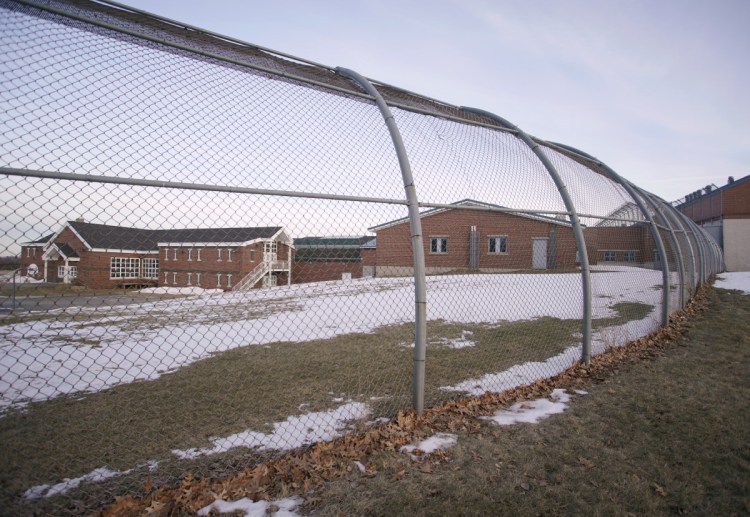No one thinks prison would be a good place to get over depression, or that a few months behind bars would cure social anxiety or a drug-use disorder.
But that’s often the only option for troubled Maine teenagers without means when they get swept up in the criminal justice system. They quickly exhaust community mental and behavioral health options, and end up facing months of incarceration for minor crimes – not because it’s the right place for them, but because it’s the only place available to a judge.
For the second time this year, state officials are being dragged to court to defend what is clearly becoming an indefensible system.
Long Creek Youth Development Center in South Portland is a prison, not a treatment facility, making it an inappropriate placement for most of the children inside its walls. The sooner it is replaced with a system of community-based treatment programs, the better off Maine will be.
The latest court case is an appeal to the Maine Supreme Judicial Court by a youth known in court papers as “J.R..” Last October, when he was 16, J.R.. was sent to Long Creek for offenses that would be considered misdemeanors if they had been committed by an adult.
Because juvenile sentences are indeterminate, he could be held there until his 18th birthday. His lawyer argues that such a long period of incarceration for such minor offenses is unconstitutional.
Last month, the ACLU of Maine sued on behalf of a boy who it alleges was denied health and dental care for injuries he suffered from being punished for behavior that was symptomatic of a mental illness.
The facility has been under heightened scrutiny since 2016, when a transgender boy died by suicide while being held there. His family says he was not adequately treated for mental illnesses, including depression, anxiety and borderline personality disorder.
These specific cases come in the context of a growing consensus among researchers, who conclude that a prison environment is the wrong place for young people to learn the skills they will need to cope with the challenges of everyday life. Putting punishment for their crimes ahead of treatment for the problems that led to the offenses is bad not only for these teenagers, but also for the community that will have to welcome them back when they are too old for the juvenile justice system.
Maine does not need to fund an incubator for maladjusted adults. A small number of youths have committed serious, violent crimes and are a legitimate threat to the community. But most of the people who end up in Long Creek are there because there is no other place for them to go.
Rather than defend these suits, the state should be building a system that would make them unnecessary.
Copy the Story LinkSend questions/comments to the editors.



Success. Please wait for the page to reload. If the page does not reload within 5 seconds, please refresh the page.
Enter your email and password to access comments.
Hi, to comment on stories you must . This profile is in addition to your subscription and website login.
Already have a commenting profile? .
Invalid username/password.
Please check your email to confirm and complete your registration.
Only subscribers are eligible to post comments. Please subscribe or login first for digital access. Here’s why.
Use the form below to reset your password. When you've submitted your account email, we will send an email with a reset code.